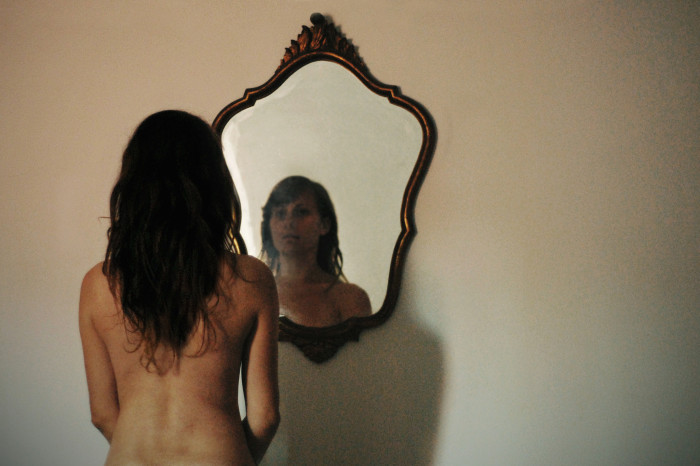When I first admitted to myself and others that I had an eating disorder (ED), two things happened. First, my confession was met with concern from family and friends, all of whom couldn’t quite understand why I had developed such a dysmorphic view of my physical person. Second, I learned about radical self-love. The standard commentary from others was nothing but concern, of course, but anyone with a disordered eating past will tell you that an outsider’s perspective does little to abrogate internal self-loathing. But radical self-love? That was a new concept for me, and it was downright alluring.
I quickly became immersed in books, articles, and blogs, all touting this seemingly revolutionary way of seeing oneself. Who doesn’t want to love their most dreaded body parts, to embrace arms, legs, stomach, etc, with a renewed sense of compassion and reverence? It almost feels like a rebellion of sorts: sticking it to the patriarchal institution of beauty, all while loving our bodies, wholly and completely. Like any vulnerable young woman touched by a disease, I became an unwavering proponent of the movement.
But here’s the thing: radical self-love, or at least as I understood it, was setting me up for an impossible and improbable ideal. While I was attempting to carve out enough space to love every freckle and wrinkle and curve, I felt defeated–not to mention exhausted–when my efforts fell short of perfect. It seemed that no matter how hard I tried, I couldn’t achieve the unconditional love for my body that seemed to be the hallmark of the movement. Sure, I could identify some positive physical attributes, and maybe understand their functionality within my life (for example, instead of cursing my legs, I could appreciate their use in allowing me to jog on a cool September morning). In spite of all this, however, I almost felt like a fraud if I tried to become overly enthusiastic about certain parts of my body.
While I think this approach is a lovely thought–and perhaps it’s a useful tool for some individuals with EDs–I’m here to tell you that you don’t have to love every aspect of your body to be happy. I don’t believe you have to wake up and stand in front of the mirror, reciting a mantra with the distant hope that you might replace self-loathing thoughts with positive ones. Our lives shouldn’t be ruled by the unattainable goal of loving all of ourselves, all of the time. Instead, I think it’s okay to express indifference or even discontent with some parts of yourself, so long as these thoughts don’t rule you. Body love doesn’t have to be an all-or-nothing endeavor. We don’t have to hate or love our bodies: we can learn to be simply okay with the parts of ourselves that bring us anxiety.
For some (me included), even learning to be okay with our bodies can be a challenge. Individuals with EDs develop an entrenched belief system, and uprooting it can take a very long time indeed. The good news is this: indifference toward the body doesn’t require positive affirmations or shunning negative self-talk altogether. It simply requires a gentle working toward being okay with the fact that we might not always love each and every part our bodies.
Do you think all women should love their bodies, or is it possible to express discontent and still be happy?
Related: Self-Love – How to Feel Confident in Your Body
Self-Love: Are You Giving Enough to Yourself?
Orthorexia: the Signs, Stigma, and Compassion
“Strong is the New Skinny”- Is it Really Healthy?
__
Photo: Silvia Sala via Flickr





